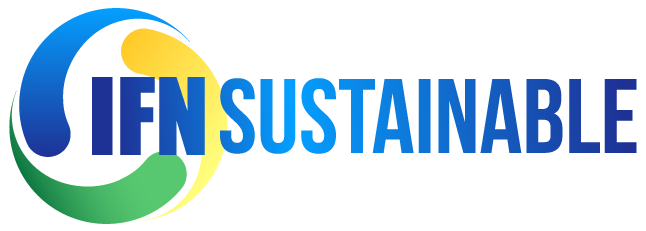Across the globe, growing concern over climate change has led to a significant increase in the pursuit of sustainability and sustainability-themed financial products. According to the Principles for Responsible Investment (PRI), a UN-supported network of investors, from April 2020 to April 2021, the number of investor signatories — asset owners, investment managers and service providers who commit to integrating environmental, social and governance (ESG) factors into investment decision-making — increased by 26%. Over that period, the collective assets under management (AuM) represented by all PRI signatories increased by 17%, going from US$103.4 trillion to over US$121 trillion in March 2021. ARNAUD DELESTIENNE explores.
Developed markets — and Europe in particular — have thus far been steering this transition, but the ever-pressing climate emergency coupled with the pandemic have helped expand the scope of sustainable finance to other regions. One of these is the Middle East, which is now preparing to lead international climate diplomacy with the UAE’s hosting of COP28 [2023 United Nations Climate Change Conference].
Net zero commitments are a recent, yet necessary trend in this region which — considering its current economic model — is particularly vulnerable to environmental challenges. Owing to a growing recognition of the speed of the energy transition and the need to step away from an overreliance on hydrocarbon, several governments have recently announced energy targets aligned to global climate goals.
The UAE and Saudi Arabia are leading the way in this respect, with the former having been the first Gulf state to commit to net zero by 2050, with an estimated US$165 billion expected to be invested in clean energy over the next 30 years. On the other hand, Saudi Arabia is aiming to reach net zero by 2060, and as part of its Vision 2030 plan, aims to completely eradicate gas burning and increase the share of natural gas and renewable energy sources to around 50% by 2030.
Middle Eastern governments are now developing an ecosystem that will stimulate the supply and demand of investments prioritizing ESG issues, and existing and vast experience around value-based investment, which is already omnipresent across the region, will come in handy.
ESG and Islamic finance: Demystifying the hurdle of ESG integration
Shariah compliant Sukuk practices and regulations have long been applied to investments in the Middle East, and much like the exclusion approach in ESG investing, Sukuk follow a strict set of rules outlining what can and cannot be considered as ethical investment.
As the momentum around ESG investing and Islamic finance continues to build up, Islamic finance now incorporates a growing number of environmental and social considerations — so much so that by 2025, it is estimated that around U$$30–50 billion will be raised through green and sustainability Sukuk to help deliver the UN Sustainable Development Goals (SDGs) (Islamic Finance Council and United Nations Development Programme (2021), Innovation in Islamic Finance: Green Sukuk for SDGs. Available at: https://www.ukifc.com/sdg/green-sukuk/).
Islamic finance inherently seeks to promote Shariah compliant ethical investments in decision-making processes, and Shariah compliant assets have the potential to be sustainable. But to fulfill these pledges and address the region’s wider need for sustainable solutions, governments and issuers will require significant support, a common set of integrated rules and — last but not least — capital investment.
A long-time advocate of Islamic finance and early adopter of sustainable finance solutions, Luxembourg will undoubtedly help spur the regional growth of ESG finance, while allowing Islamic finance to further prosper in Europe. The first western country to host an Islamic finance institution in 1978 and the first European country to list a Sukuk facility in 2002, Luxembourg has played a pivotal role in raising the profile of Shariah compliant products. Defining a clear framework for Sukuk has helped expand the list of sovereign, financial and corporate issuers that have chosen one of Luxembourg’s markets for Sukuk listings since 2002, but there is more to that.
LGX — an accelerator for Middle Eastern issuers stepping into sustainable finance
Luxembourg is also home to the Luxembourg Green Exchange (LGX), the platform recognized by the UN for its leading role in pushing the sustainable finance agenda. Today, more than 1,200 sustainable debt securities from 220 issuers in more than 45 countries are displayed on the LGX, making it the world’s leading platform for green, social, sustainability and sustainability-linked (GSSS) bonds.
Last year alone, 560 new GSSS bonds were displayed on the LGX, representing a growth of 47% compared with the number of new bonds displayed on the LGX in 2020. The total amount raised through these new sustainable bonds in 2021 was EUR246 billion (US$280.79 billion), up 31% from 2020.
Offering a gateway to international investors with well-defined ESG mandates through product-specific transparency criteria, the LGX has been center stage in securing credibility for issuers of sustainable securities since 2016. With the recent launch of the LGX Academy, the platform has been extended to offer sustainable finance educational services, pragmatically supporting issuers looking to enter the market. With the LGX DataHub, the LGX also came to market with an unprecedented offering of granular and structured data, covering close to the full universe of GSSS securities listed worldwide, justifying its position as the leading platform in sustainable finance.
Home to the LGX and more than 37,000 securities in 66 currencies issued by issuers in more than 100 different countries, the Luxembourg Stock Exchange brings together a broad range of international issuers and investors, making it the ideal partner to help sovereigns and companies from the Middle East mobilize the massive amounts of global capital needed to transition to more sustainable business models — whether that is in Shariah compliant or western format.
Arnaud Delestienne is a member of the executive committee of the Luxembourg Stock Exchange. He can be contacted at [email protected].



